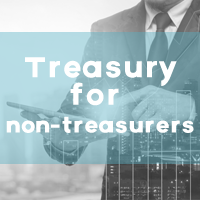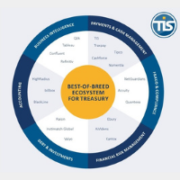Accepting Crypto Currency In Corporate Treasury
03-02-2022 | treasuryXL | ComplexCountries | LinkedIn |
As more treasuries will have to start accepting crypto, whether it be an emerging market like El Salvador, for digital assets, NFTs and other goods that are sold in the metaverse. This report explores the experiences of treasurers in setting up their systems to accept crypto currency.
This report is based on two treasury peer calls chaired by Simon Jones and was compiled by Monie Lindsey.

This report is based on two treasury peer calls chaired by Simon Jones and was compiled by Monie Lindsey.
The full 14-page detailed report is available to subscribers in our Report Library.
To find out about subscriptions and other value-added services, please make an enquiry.
Chair’s Overview
Following the CompleXCountries call ‘Accepting Bitcoin in Corporate Treasury – Lessons from El Salvador’, (Report Summary Here), the CXC community clearly did not see this as a one off. The necessity to accept Bitcoin & Crypto may become a reality for more Treasurers, but the path is far from being very clear. The purpose of this call was to share experiences and challenges, and learn from the various solutions Treasurers are putting in place if they have to accept crypto currency to support their businesses.
The session was extremely insightful and even if a Corporate is not accepting Crypto now, this report required reading for the Treasury community. It is a challenge that will increasingly become more common as corporations drive more digital sales channels. The regulated Crypto exchanges have seen significant growth over the last few years and the ability to exchange fiat for crypto and back to fiat has become widely available in the marketplace.
We posed the questions: Is this something that they have had to deal with or are going to have to deal with in the future? El Salvador was the first newsworthy case but on this call we gained insight to how it is becoming more mainstream in digital businesses and therefore becoming far more common for corporates around the world.
Non-Fungible Token (NFT) Definition. “A unique digital certificate, registered in a blockchain, that is used to record ownership of an asset such as an artwork or a collectible.” Collins Dictionary, who picked ‘NFT’ as their word of the year 2021.
To summarise the key learning points:
- Consumer businesses are targeting digital native consumers who are increasingly buying NFTs as collectibles or to demonstrate their alignment with a brand or product. This client base expects to be able to buy or trade NFTs in exchange for crypto assets that they might have accumulated from investments.
- The marketplace and blockchain the NFT is issued on, will determine the crypto asset that can be used to buy the NFT, e.g. Ethereum or stable coins on the Ethereum blockchain.
- Coinbase was the exchange of choice for the Corporate Treasurers who took part in this call, primarily because they are publicly listed and regulated in many markets around the world.
- KYC & Onboarding procedures were no different for Coinbase than for opening a bank account at a relationship bank, it still took weeks, not days.
- Some Treasurers allow NFTs to be purchased via a crypto currency, but immediately convert back to fiat currency, via the exchange provider, both to avoid volatility and because of uncertainty over the accounting, legal and tax implications of holding crypto currency. Bitcoin was not widely used, as it was deemed to be more open to money laundering concerns by the exchanges.
- Crypto Exchange commission continues to be quite expensive and is not as tight as fiat currency exchange.
- Accepting Bitcoin seemed limited to only El Salvador, where it is legal tender in addition to USD. (Corporates are required to accept BTC in payment should their client require it.) Other countries may follow.
- Anti-Money Laundering controls continue to be top of mind and it’s important to make sure the NFT auction houses, marketplaces and collecting exchanges are able to trace the origin of coins to protect their corporate clients.
Conclusion: Highly insightful session, brings home the reality that as more businesses issue and sell digital assets like NFTs online for their products & services, it will be a requirement to accept crypto coins. No longer are crypto-assets like bitcoin just for speculative investment, but they are becoming the instrument of choice for some digital native consumers to use for purchases. Understanding the digital product & services strategy at a Corporate and the implications that might have for a corporate treasurer is fast becoming a necessity to supporting the business.
Would you like the full copy of this report?
Sign up for our updates and get a free copy, plus regular bulletins and more occasional free reports.









